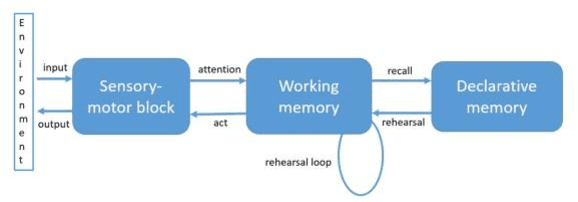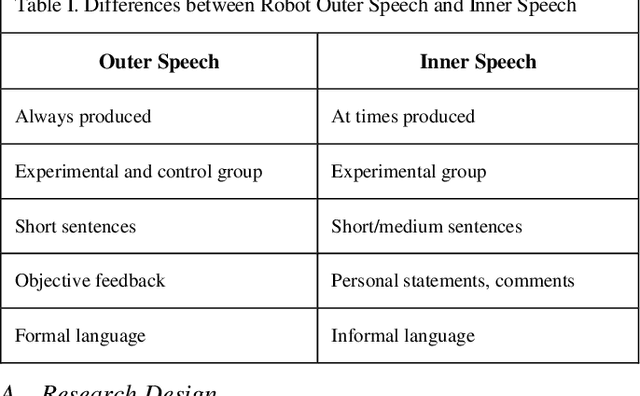Valeria Seidita
A Social Robot with Inner Speech for Dietary Guidance
May 13, 2025Abstract:We explore the use of inner speech as a mechanism to enhance transparency and trust in social robots for dietary advice. In humans, inner speech structures thought processes and decision-making; in robotics, it improves explainability by making reasoning explicit. This is crucial in healthcare scenarios, where trust in robotic assistants depends on both accurate recommendations and human-like dialogue, which make interactions more natural and engaging. Building on this, we developed a social robot that provides dietary advice, and we provided the architecture with inner speech capabilities to validate user input, refine reasoning, and generate clear justifications. The system integrates large language models for natural language understanding and a knowledge graph for structured dietary information. By making decisions more transparent, our approach strengthens trust and improves human-robot interaction in healthcare. We validated this by measuring the computational efficiency of our architecture and conducting a small user study, which assessed the reliability of inner speech in explaining the robot's behavior.
Robot's Inner Speech Effects on Trust and Anthropomorphic Cues in Human-Robot Cooperation
Sep 20, 2021



Abstract:Inner Speech is an essential but also elusive human psychological process which refers to an everyday covert internal conversation with oneself. We argue that programming a robot with an overt self-talk system, which simulates human inner speech, might enhance human trust by improving robot transparency and anthropomorphism. For this reasons, this work aims to investigate if robot's inner speech, here intended as overt self-talk, affects human trust and anthropomorphism when human and robot cooperate. A group of participants was engaged in collaboration with the robot. During cooperation, the robot talks to itself. To evaluate if the robot's inner speech influences human trust, two questionnaires were administered to each participant before (pre-test) and after (post-test) the cooperative session with the robot. Preliminary results evidenced differences between the answers of participants in the pre-test and post-test assessment, suggesting that robot's inner speech influences human trust. Indeed, participant's levels of trust and perception of robot anthropomorphic features increase after the experimental interaction with the robot.
 Add to Chrome
Add to Chrome Add to Firefox
Add to Firefox Add to Edge
Add to Edge